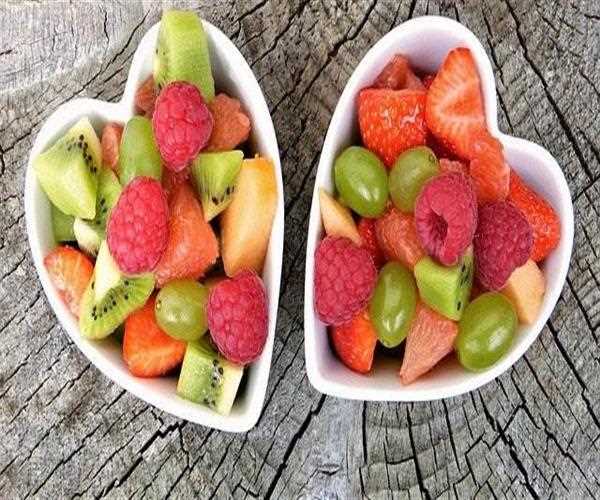
13-Apr-2022
Fruits to eat when Pregnant
The limitations of a pregnant diet may seem to never end: any caffeine, no shellfish, no deli meats, etc. Women should be especially careful about what certain foods and drinks enter their bodies as they can harm the growth and development of the baby.
Fruits can supply women with a variety of vitamins and minerals that are useful for the newborn; however, some fruits can be dangerous when eaten during pregnancy.
Fruits to Avoid While Pregnant: Good, Bad, and the ugly.
Health Benefits of Fruits Fruits are undoubtedly good! These include vitamins and minerals that help your baby develop during pregnancy. Fruits are an excellent and beneficial source of fiber, potassium, vitamins A and C, folic acid, and other nutrients that expectant mothers need to keep their bodies strong until their baby arrives.
Fruits to eat while pregnant
Here are some amazing nutritious fruits that can be taken while pregnant, without delay.
Apple
Apples are high in fiber content, which improves women's digestion and prevents piles, which are a common problem in pregnant women.
Citrus
Citrus fruits such as lemons and oranges are rich in vitamin C. Vitamin C is essential for your baby's optimal **** development. Citrus also helps with digestion and prevents morning sickness in pregnant women.
Bananas
Bananas are high in potassium and a great source. Potassium helps a woman control body fluids and blood pressure, as well as reduces leg cramps and discomfort in the later stages of pregnancy.
Kiwis
Kiwis are high in folic acid and very tasty. Folic acid plays an active role in preventing fetal developmental abnormalities. In addition, kiwi helps expectant mothers absorb iron, which is important to ensure that the mother's blood provides enough oxygen to her baby.
Watermelon
Watermelon contains high levels of vitamins A, C, and B6, as well as potassium and magnesium which help with cramps. Magnesium relaxes muscles, which helps prevent premature labor during pregnancy. In addition, watermelon helps with morning sickness, heartburn, and dehydration.
Jumbo loan
Strawberries, blueberries, raspberries, and every other berry you can think of fall into this category. Berries are high in antioxidants, which protect both mother and baby from dangerous diseases.
Other fruits that are good for you
In addition to the fruits already mentioned, there are plenty of nutritious fruits that can provide the baby with the nutrients it needs while on ****. They are as follows:
- Mango
- Watermelon
- Cherry
- Pomegranate
- Apricot
- Ask your doctor which fruits are safe and how much to eat during pregnancy.
Fruits to avoid during pregnancy
Although the list is much shorter than the previous ones, some fruits pose a risk to pregnant women and their unborn children.
Pineapple
The bromelain found in pineapple has been shown to soften ****** and induce early childbirth when consumed in significant amounts. Various practitioners believe that eating small amounts of pineapple is harmless and that the fruit contains many beneficial ingredients. To be safe, however, pineapple consumption should be limited to the first trimester of pregnancy.
Papaya
When papaya is fully ripe, it is safe to include it in the diet of expectant mothers. Raw papaya, on the other hand, contains latex, which promotes premature contractions. In addition, the peel and seeds of ripe papaya are also not safe to eat.
Grapes
It is slightly gray, however, and it is sometimes recommended for pregnant women to avoid grapefruit. This is because grapes contain a toxin called resveratrol, which can trigger toxicosis or other complications during pregnancy. Grapes, like pineapples, are considered a low-risk fruit when eaten in moderation.
Last thoughts
Fruits should always be washed before eating. Any fruit may contain pesticide residues or crop residues that are harmful to both mother and baby. As a result, many moms choose organic vegetables, although they still need to be washed.
Most fruits are high in sugar, which can be a problem for women at risk for gestational diabetes. As a result, it is best to avoid fruit juices altogether and limit fruit intake to a modest amount to get the nutrients you need without added sugars.
If you have any concerns about your pregnancy diet, talk to your doctor about tips and strategies to get the nutrients you need for your baby to grow normally during pregnancy. It is always better to be safe than sorry!

Student
An inquisitive individual with a great interest in the subjectivity of human experiences, behavior, and the complexity of the human mind. Enthusiased to learn, volunteer, and participate. Always driven by the motive to make a difference in the sphere of mental health - and normalize seeking help through a sensitive and empathetic approach
Join Our Newsletter
Subscribe to our newsletter to receive emails about new views posts, releases and updates.
Copyright 2010 - 2026 MindStick Software Pvt. Ltd. All Rights Reserved Privacy Policy | Terms & Conditions | Cookie Policy